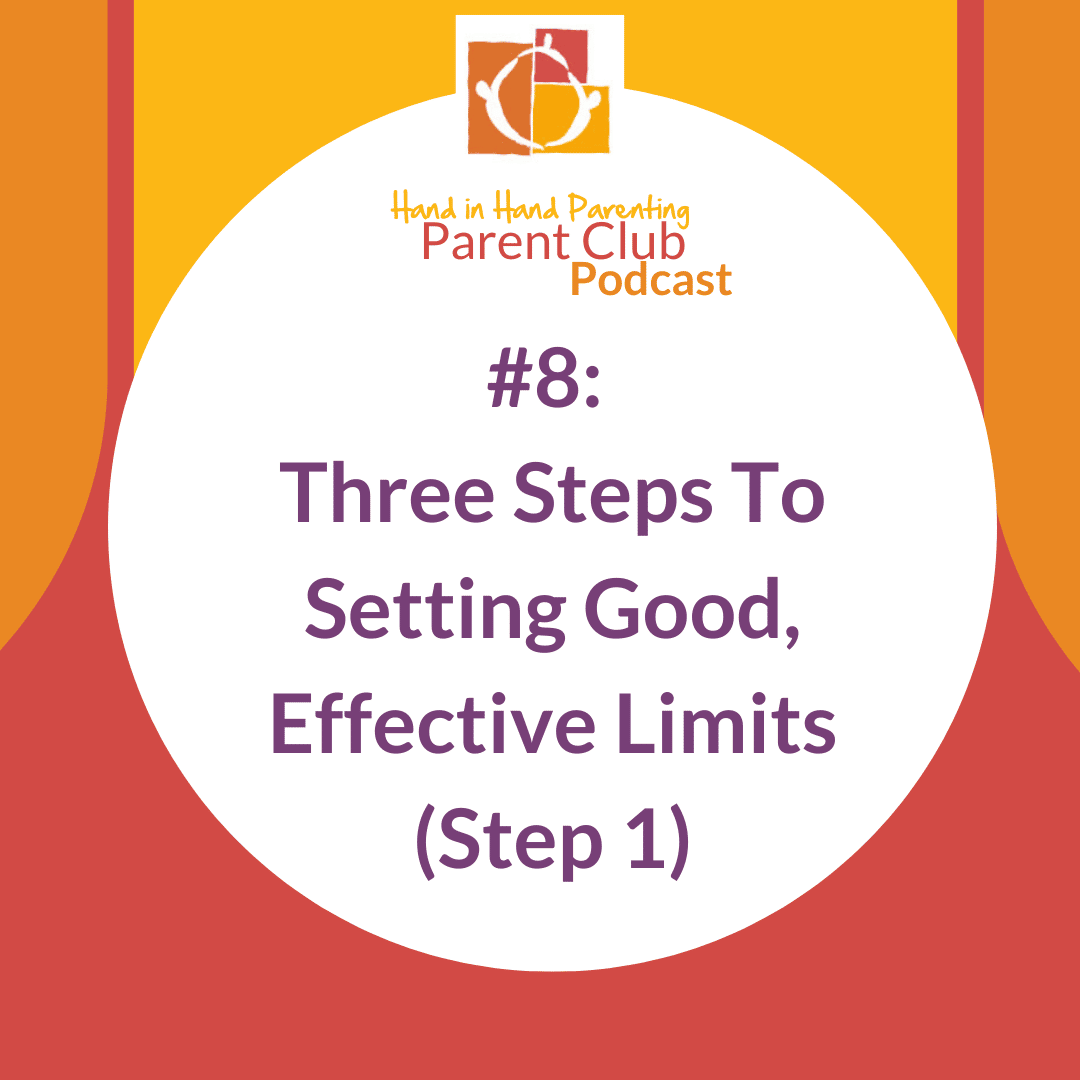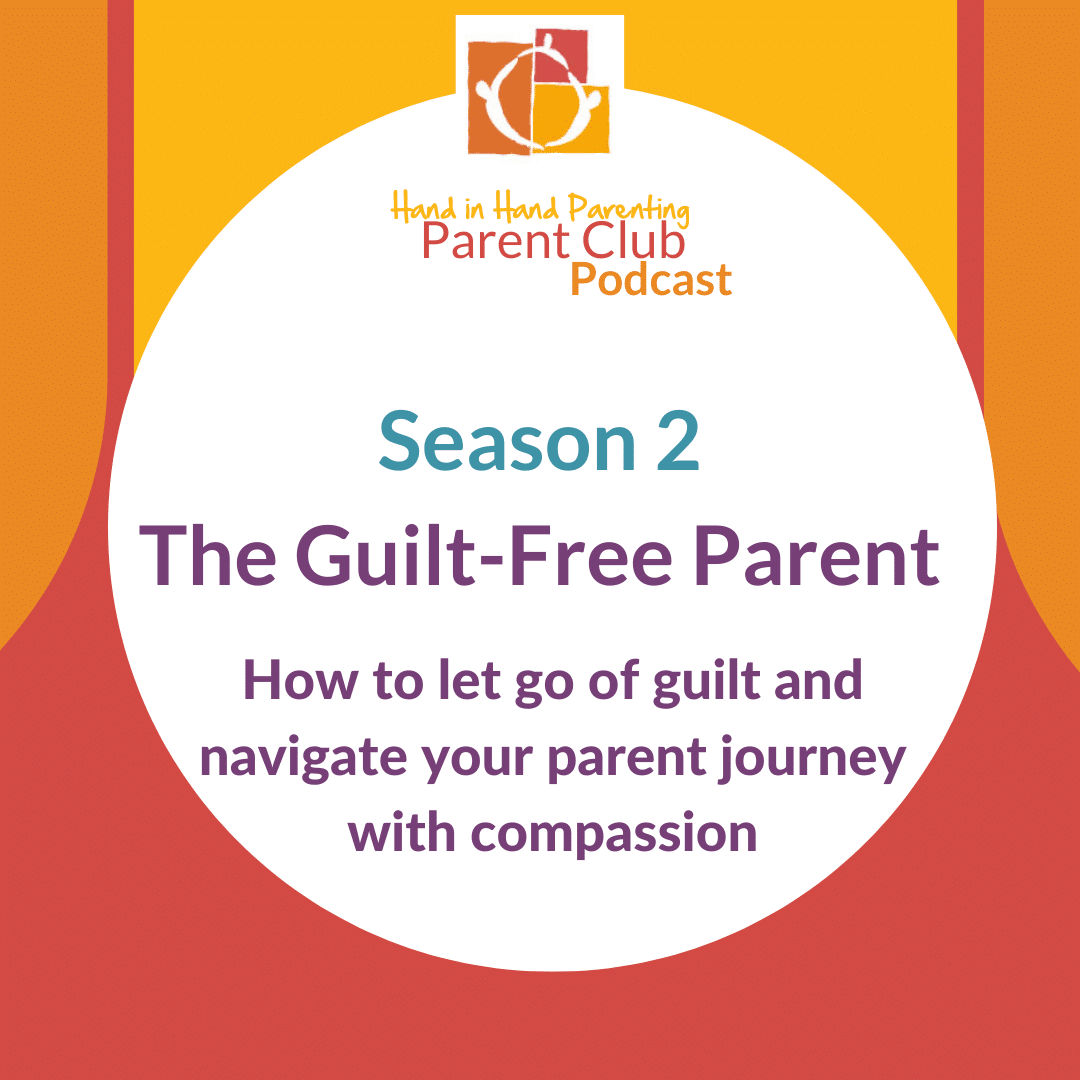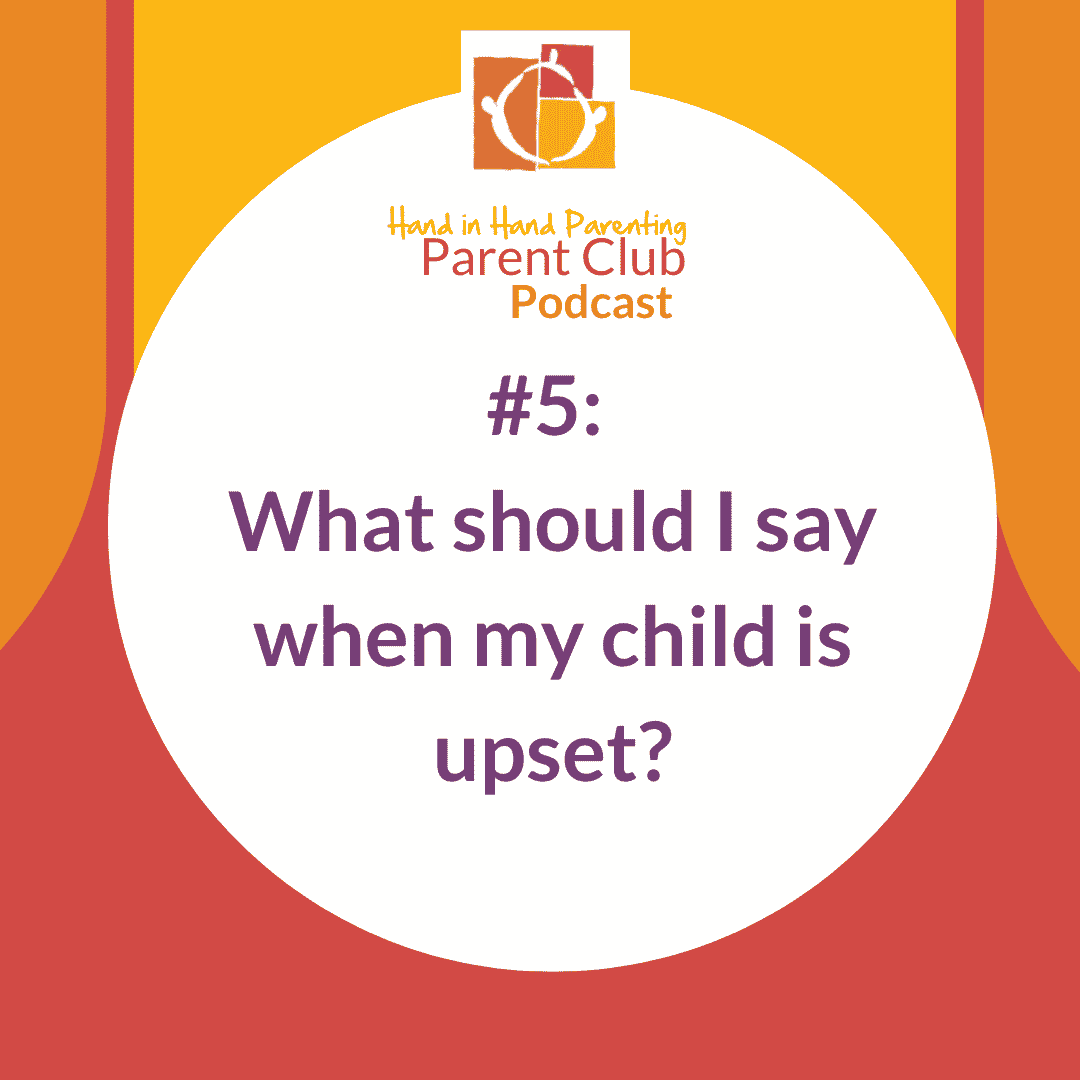Episode Transcript
Speaker 0 00:00:01 Welcome to the Hand in Hand Parent Club podcast. I'm Emily Murray, a hand in hand instructor and a mom of two.
Speaker 1 00:00:06 I'm Kathy Gordon, a single adoptive mom of a now young adult son, a hand in hand instructor, and we are both moderators of hand-in-hand, awesome membership program, the parent club. Every
Speaker 0 00:00:17 Week we'll be answering a parenting question. You'll hear about hand in hand, parenting's, powerful, respectful parenting tools. We'll share how they help you work with your child's feelings, especially when their behavior gets harder, confusing.
Speaker 1 00:00:29 You can feel good about using these tools. They've brought warmth and connection to our own families and to many thousands of families around the world who are using the hand in hand approach.
Speaker 0 00:00:39 That's why hand in hand and the parent club exist. We're here to support you and your family so you have more good, sweet, fun times together. Welcome back parents. So this episode is focusing on the idea that maybe parenting doesn't have to feel so serious and high stakes.
Speaker 1 00:01:00 Yeah, that's our question this week. Like, why is parenting, does it feel, why does it feel so serious and high stakes? And it, it, it is because, you know, we have a lot of responsibility, but we wanna help you like shift a little bit away from that. You know, last episode we talked about what to do in that red hot moment. We gave you a whole list of things. So we had, we have one more idea that we thought deserves a whole episode. Hand in hand has this wonderful tool called play listening where we play with the upset or the refusal and we listen for the laughter. Well, you can play, listen with yourself. You're here with us. So we know this is something that's important to you and something you're working on and well done. You're in good company. There's often a, you know, there's often a gap between the parent that we wanna be and the parent that comes out of our mouth in tough moments. And the fact that you're here means that you're already recognizing that gap. Yay. So today we're gonna share a way to short circuit those reactionary behaviors to help you kind of stop before you even need one of the tools and one of the strategies that we talked about last week.
Speaker 0 00:02:19 So the idea of using this tool of play listening when we as the adult in the room are going off track, is it's a really unique way of using this play listening tool. And it's important because laughter is a great way to keep access to the part of our brains that can think and respond rather than react and blurt. Um, I'm pretty sure I'm not the only parent in the world who has had one of those moments where words are coming out of my mouth and even in the moment I'm like, stop, bring them back. I don't mean that. Um, so we all have this fight, flight,
Speaker 1 00:02:59 Freeze back in
Speaker 0 00:03:00 System, right? Like pull it back in. Rewind. Um, so this fight, flight, freeze reaction system, its job is to keep us safe, but sometimes it can overreact based on overwhelm, stress, old hurts being kind of kicked up and stirred up, et cetera, et cetera. It's a very sensitive system and it uses this emergency safety lever when it senses danger to get us to react even when we actually have many options for a safe response. Yeah.
Speaker 1 00:03:37 So the first step is noticing early signs of our own off-track reactions or our tempers beginning to flare or shut down, you know, and, and feeling that tension beginning to set in. I know for me, I, I, it's, I feel my chest start to get a little tense and I can actually feel a little hot. You know, like, and I, I, I absolutely feel my, my mind start to get a little cloudy. Like, I, I start to feel just a little bit panicky. Like, you know, like I, I can remember, um, <laugh> one time with my son, uh, this is before I, I got to the lose it point right? Where I was trying to be patient, patient, patient and then boom. So, um, but I can remember sort of this sense of like flipping through my mind of like, what can I do to make him do what I want him to do? You know? So that's like the beginning stage of that <laugh>. I
Speaker 0 00:04:41 Think I grit my teeth. I think that's mine. I grit my teeth and I feel a growl. Yep.
Speaker 1 00:04:46 Like bubbling your jaw. Yep. Mm-hmm. <affirmative>. Um, and so in season one we touched on the idea of rewiring our brains to better be able to access our respond mode. And the fact that you're here and listening to this podcast is an indication. You've already started a new wiring path in your brain. So good for you. And each time we think about this and we practice it, and you know it, you are, you're, we're rewiring your brain. You are, you are starting to put that me kind of pause mechanism in place. And, you know, even when you miss this new path and then you have to come back to repair. We're, we're gonna talk about repair in a, a, a few episodes down the road. But even when you miss and then you come back and you repair, you're making it easier for your brain to find that respond pathway than very next time.
Speaker 0 00:05:40 It really can feel like the split second, like the path is there and whoops, I went by it. So it really can feel that quick. And these tools that we share with you have a way of helping to slow us down so that path becomes more accessible the the next time. So, um, play listening is one way to, to do that. Slow down so we can, we can catch that split second awareness and take the path we wanna take, not the reaction path. Um, so some things that I use when I'm play listening with myself, when I grit my teeth and I'm feeling that anger bubble, um, you know, some of you might have different reactions. Um, some of you might have a freeze reaction. Um, some of you might have a flea reaction, but whatever that sense is, whatever you wanna do in the moment when, um, your, your child is, uh, doing something that's feeling triggering to you, I try this, I, um, I, when I feel the urge to yell, or when I feel the urge to be rough bubbling, I use that energy in a silly way with play listening. So maybe I keep the volume of the anger that wants to come out of my body, but I transform it into being playfully confused why my anger is coming out like a quacking duck. So I might say the thing that I wanna say, like, you little <laugh>, but it comes out like quack, quack, quack, quack. And um, or maybe I you the ridiculous mock threat. Like, if I hear one more argument today, I'm going to sit on all of you. And when it's said hard in a
Speaker 1 00:07:20 Eat my elbow, right
Speaker 0 00:07:21 <laugh>,
Speaker 1 00:07:23 You don't put your shoes on, I'm gonna eat my elbow, or I'm gonna let out the smelliest fart and you're gonna go running right outta the house with bare feet.
Speaker 0 00:07:32 I mean the, the potty humor, I can't understate the, the, the usefulness of potty humor, um, in these moments. And it's really that tone, the tone, the silly tone accompanied by something playful. Like, you know, if I was gonna play the sit on you game, I might stick my bum out in the air and wiggle it as a threat that amplifies it. And here's the thing. It's not like they're gonna hear that threat and say, oh, you know, of course now I'll do that thing. They're going to take you up on it. So be ready to actually follow through with your silly, ridiculous, impossible threat. Um, so they get a chance to laugh at our powerlessness <laugh>,
Speaker 1 00:08:17 Right?
Speaker 0 00:08:19 Yes. It's so fun. It's so fun. And this role reversal is just divine. It really, the laughter that comes out in this moment is just so helpful, but it can take practice and it will likely feel weird at first if this is not something that you're used to. And that's okay.
Speaker 1 00:08:42 So the one small thing we'd love for you to try this week is first of all, to observe your reaction. Is there a pattern? Is there a tendency on how you react? And, and if you, when you notice that pattern, can you make a joke out of it? Can you make fun of yourself? If you can make fun of yourself in that moment by, you know, quacking like a duck or singing opera songs or walking, you know, you, you go for your child like you're gonna get 'em, but you, but you fall in your face or you walk into the wall, um, uh, or one of Emily's favorites is the crabby hands. You're going after them with crabby hands. If you can, if you can, uh, really make fun of yourself, then it can lighten, really lighten the tension and get your child laughing, connect the two of you, and then you, you might get some cooperation. So that's our one small thing for this week to first observe the pattern and think of some ways that you can make fun of yourself and put that frustration into doing something silly, a mock threat, um, and try it. And then let us know what you discover.
Speaker 0 00:10:00 And if it feels like we've just asked you to, you know, transform into an alien on another planet, we get that. Um, if being silly or goofy is not something that, that feels like it comes naturally or easily, there are lots of reasons why that's, that's true. So next week we'll talk, um, more on the subject of how we can make silliness and lightness something that's easier to access.
Speaker 1 00:10:24 We're gonna help you learn to feed your funny. So see you next time. Bye-bye.
Speaker 0 00:10:30 Thank you so much for tuning into the Hand In Hand Parent Club podcast. Please like and subscribe to hear more and to connect with us between these episodes. Come on over to hand in hand parenting.org to join the parent club where you can get coaching classes and live support.
Speaker 1 00:10:43 Come join our vibrant community of parents in the parent club who are committed to getting the support they need to be the parents they wanna become. We'd be honored to support you too. This podcast and the Parent Club are part of Hand in Hand Parenting, a nonprofit organization that supports parents all over the world. We are here for you when parenting gets hard.


